Sixteen scholars join faculty
Sixteen distinguished scholars have joined the University faculty this year.
The 16 new professors are: Clifford Ando, Francisco Bezanilla, Andrew Davis, Neil Guterman, Samuel Kortum, Ratneshwar Lal, Gregory Lawler, Christian Leuz, Anup Malani, Jeffrey Matthews, David Nirenberg, Christopher Rhodes, Benoît Roux, Matthew Stephens, Mauricio Tenorio Trillo and Ming Xu.
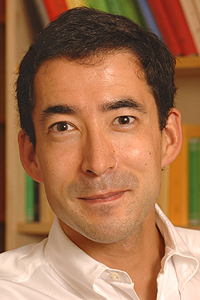 Clifford Ando 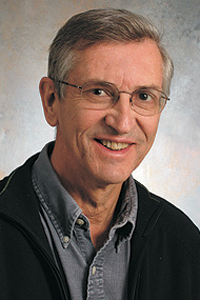 Francisco Bezanilla 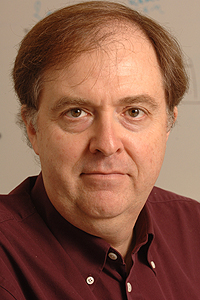 Andrew Davis | |
Clifford Ando, newly appointed Professor in Classics and the College, studies the social and intellectual history of Rome from the time of the late Republic to the early and high empire.
His first book, Imperial Ideology and Provincial Loyalty in the Roman Empire (2000), examines the engendering of loyalty in the Roman provinces. He also has written on Greek and Roman political theory in the late Republic and early empire and is producing a series of essays on Augustinian metaphysics.
Ando edited a volume on Roman religion for the series Edinburgh Readings in the Ancient World (2003) and, with Jörg Rüpke, another on Religion and Law in Classical and Christian Rome (2006). In addition to his work on Rome, Ando researches ancient historiography, contemporary social theory, Christianity and the classical tradition, and Edward Gibbon.
Ando comes to the University from the University of Southern California where he has been on the faculty since 1999, and where he served as co-director of the Center for Law, History and Culture for two years. Prior to that, he was at York University.
Ando is the recipient of the 2003 Charles J. Goodwin Award of Merit given by the American Philological Association.
In 2004, the American Council of Learned Societies named Ando the Frederick Burkhardt fellow and in that same year, he also was named a fellow of Huntington Library, Art Collections, and Botanical Gardens, a collections-based research and educational institution. Ando earned his B.A. in Classics from Princeton University and his Ph.D. in Classical Studies from the University of Michigan.
Francisco Bezanilla joined the University faculty earlier this year as a Professor in Pediatrics. An established leader in the biophysics of the complex systems used by cells to regulate their resources and activities, Bezanilla will be working with other physician-scientists in the Institute for Molecular Pediatric Science.
Bezanilla’s work focuses on how cells monitor and regulate ion flow through these channels. By manipulating the channel protein with molecular biological techniques, and using electrical and optical techniques to monitor structural changes, he has been a pioneer in the effort to understand channel function at the molecular level, which is expected to lead to the development of many new medications.
He joined the faculty at the University of Chile in 1972. In 1977, he was appointed Professor of Neuroscience at the University of California, Los Angeles. Bezanilla is the recipient of many awards in his field, including election to the Latin American Academy of Sciences and the National Academy of Sciences in April this year.
A native of Chile, Bezanilla earned his B.S. in biology and his M.S. and Ph.D. in biophysics from Catholic University in Santiago, Chile. He came to the United States in 1969 as a post-doctoral fellow in biophysics at the National Institutes of Health, followed by a second fellowship in physiology at the University of Rochester.
Andrew Davis, a Senior Scientist in the Enrico Fermi Institute and in Geophysical Sciences, has been appointed Professor in Geophysical Sciences and the College. Davis studies meteorites to better understand the origin and evolution of the sun and planets. His analyses include examining interstellar dust grains, the microscopic bits of matter that formed around dying stars and were transported to Earth via meteorites.
In 2004, Davis became founding director of the Chicago Center for Cosmochemistry, a joint effort between the University, Argonne National Laboratory and the Field Museum.
He serves on the Stardust Sample Allocation Committee, which will decide how to distribute samples collected from Comet Wild-2 by NASA’s Stardust spacecraft. He also chairs the Genesis Sample Allocation, which oversees the curation and guides the analysis of charged particles from the sun that NASA’s Genesis mission has collected.
An elected fellow of the Meteoritical Society, Davis is editor of Meteorites, Planets, and Comets (2004) and volume one of the Treatise on Geochemistry. In 2002, Davis presented the Nobel lecture in physics in Stockholm on behalf of his father, Raymond Davis Jr.
Davis earned his B.A. in chemistry from Grinnell College. He then attended Yale University, where he received his M. Phil. and Ph.D. in geochemistry. He came to the University as a Research Associate in Geophysical Sciences in 1976, and was appointed to his current positions as a Senior Scientist in the Enrico Fermi Institute and in Geophysical Sciences in 1997 and 1998, respectively.
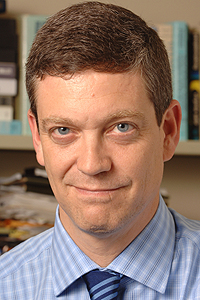 Neil Guterman 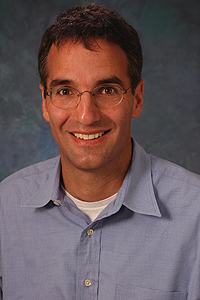 Samuel Kortum 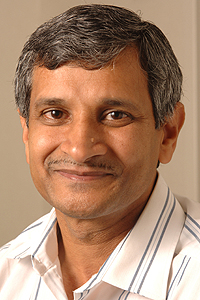 Ratneshwar Lal | |
Neil Guterman, an expert who studies child abuse and neglect and violence exposure in children, has joined the University as a Professor in the School of Social Service Administration.
He is the author of Stopping Child Maltreatment Before it Starts: Emerging Horizons in Early Home Visitation Services (2000) as well as numerous papers on family risk, child abuse prevention, and children’s exposure to community violence. Among other studies, he is principal investigator for “Fathers and Risk for Physical Child Maltreatment: Prevention Pathways,” and “Building Social Support to Enhance Home Visitation,” both funded by the Centers for Disease Control and Prevention. Guterman is also principal investigator for “Randomized Trial Examining the Efficacy of Parent Aids to Prevent the Recurrence of Child Abuse and Neglect,” with funding from the Children’s Bureau, Administration for Children and Families.
He has been an associate professor at the Columbia University School of Social Work.
Guterman received a B.A. from the University of California, Santa Cruz in 1983, an M.S.W. from the University of Michigan in 1986 and a Ph.D. in social work and psychology from the University of Michigan in 1992, after which he completed a Lady Davis Postdoctoral Fellowship at the Hebrew University Baerwald School of Social Work in Jerusalem in 1993.
Samuel Kortum, an expert on international economics and industrial organization, has joined the University faculty as a Professor in Economics.
Kortum is the author of numerous journal papers on international trade, technological change, economic growth and related topics. In 2004, he and co-author Jonathan Eaton were awarded the Frisch Medal for their paper “Technology, Geography, and Trade.”
He has been a professor of economics at the University of Minnesota and also served on the faculty of Boston University. He was an economist with the Board of Governors at the Federal Reserve System and a National Fellow at the National Bureau of Economic Research.
Kortum’s research combines theory and empirical analysis to understand the incentives for technological innovation, the influence of innovation on economic performance, and the role of technology in shaping the international economy.
Kortum received a B.A. from Wesleyan University in 1983 and a Ph.D. in economics from Yale University in 1992.
An authority on the biomedical applications of atomic force microscopy, Ratneshwar Lal has been appointed Professor in Medicine. He comes to Chicago from the University of California, Santa Barbara, where he was a professor and research scientist in the Neuroscience Research Institute.
Lal is a pioneer in molecular imaging of biological structures and processes. He combines techniques such as atomic force microscopy with other structural and functional methods to study the molecular dynamics of biological specimens. Current projects include efforts to understand the correlation of structure and function of gap junctions, pore-like structures that serve as communication channels between two adjoining cells. Using nano-to-system approach, he is investigating the role of oxidative stress on cellular behavior with a direct implication to cardiac arrhythmias, apoptosis and cancer.
He also studies three-dimensional structures of potentially misfolded proteins that can disrupt the cell membrane—which may have implications for understanding neurodegenerative diseases such as Alzheimer’s and other systematic diseases. His work also involves designing new nanosensors and nanodevices for biomedical diagnostics and potential therapeutics.
He was a research fellow in biology at the California Institute of Technology from 1987 to 1989. He then spent four years as an Assistant Professor at Chicago from 1989 to 1994, before joining the Neuroscience Institute at UCSB.
Lal earned his B.Sc. with honors in physics from Patna University in Patna, India, in 1976, and then completed his M.Sc. in physics and his M. Phil. in biophysics from Jawaharlal Nehru University in New Delhi. He earned his Ph.D. in neurobiology from the University of Alabama at Birmingham in 1987.
Gregory Lawler has joined the faculty as a Professor in Mathematics and the College. His major fields of interest are probability and stochastic processes, and statistical physics.
He is the author or co-author of four books: Intersections of Random Walks (1991); Introduction to Stochastic Processes (1995, 2006); Lectures on Contemporary Probability (1999); and Conformally Invariant Processes in the Plane (2005). He is the editor of a fifth book titled School and Conference on Probability Theory (2004).
Lawler is a fellow of the American Academy of Arts and Sciences, the Alfred P. Sloan Foundation and the Institute of Mathematical Statistics. He serves as editor-in-chief of the Annals of Probability. He co-founded the Electronic Journal of Probability in 1995 and served as its co-editor until 1999.
He received his B.A. from the University of Virginia with Phi Beta Kappa honors, and then completed his M.A. and Ph.D. at Princeton University.
Lawler began his career as a faculty member at Duke University in 1979, where he most recently served as the A. Hollis Edens professor of mathematics from 2001 to 2003. Lawler comes to Chicago from Cornell University, where he was appointed a professor of mathematics in 2001.
He also has been a visiting scholar at New York University’s Courant Institute of Mathematical Sciences, Cornell University and the University of British Columbia.
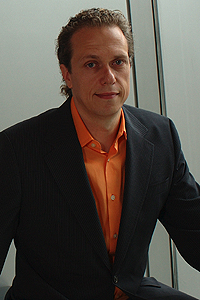 Christian Leuz 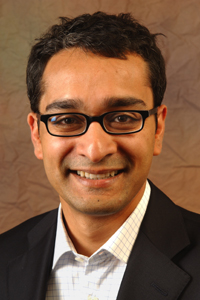 Anup Malani  Jeffrey Matthews | |
Christian Leuz has joined the University faculty as a Professor of Accounting and the David G. Booth Faculty Fellow in the Graduate School of Business. Previously, Leuz was the Ford Foundation Visiting Assistant Professor of Accounting in the GSB.
Leuz’s research has focused on international accounting, financial disclosure and capital markets, the cost of capital, securities regulation, and financial statement analysis.
He has published numerous journal articles and book chapters, including “International Differences in Cost of Capital: Do Legal Institutions and Securities Regulation Matter?” with Luzi Hail in The Journal of Accounting Research (2006) and “Political Relationships, Global Financing, and Corporate Transparency: Evidence from Indonesia,” with F. Oberholzer in The Journal of Financial Economics (2006). Leuz also co-edited The Economics and Politics of Accounting: International Perspectives on Research Trends, Policy, and Practice (2004).
Prior to his Chicago faculty appointment, Leuz was the Harold Stott Term assistant professor of accounting at the Wharton School at the University of Pennsylvania and a fellow at Warton’s Financial Institution Center.
Leuz studied Business Economics at JW Goethe UniversitŠt Frankfurt. He earned an M.S. in Finance and Management from the University of Wisconsin, Madison in 1991, a Ph.D. in Business Administration from JW Goethe UniversitŠt Frankfurt in 1996, and a post-doctoral degree in Business Administration from JW Goethe UniversitŠt Frankfurt in 2000.
Anup Malani, who has joined the faculty of the Law School, is an expert in health law, corporations and bankruptcy. His research interests include law and economics (welfare evaluation of legal rules, compensation for mass torts), health economics (control of infectious disease, placebo effects, antibiotic resistance, medical malpractice liability, conduct of and inferences from medical trials) and corporate law and finance (executive compensation, the role of non-profit firms).
Malani has a long history with the University. In 2000, he graduated from the Law School before going on to earn his doctorate in Economics in 2003. He was a Visiting Professor in the Law School during the past year, and from 1997 to 1999, he served as a Lecturer in Economics.
Malani comes to the University from a joint appointment at the University of Virginia Law School and the University of Virginia School of Medicine, where he has been a faculty member since 2002.
In addition to his work in academia, Malani clerked for the Hon. Stephen F. Williams, U.S. Court of Appeals for the District of Columbia Circuit from 2000 to 2001, and for U.S. Supreme Court Justice Sandra Day O’Connor from 2001 to 2002.
During the Autumn Quarter, Malani is serving as a visiting professor at Harvard University Law School. He also is a Research Affiliate for the Joint Center for Poverty Research at Northwestern University and the University of Chicago.
Gastrointestinal surgeon Jeffrey Matthews, a leading authority on the surgical treatment of diseases of the pancreas, bile ducts and liver, has been appointed Chairman of Surgery, effective Oct. 1. Matthews comes to the University from the University of Cincinnati College of Medicine where he was the Christian R. Holmes professor and chairman of surgery, as well as a professor of molecular and cellular physiology.
As chairman of surgery at Cincinnati, Matthews more than doubled research funding and doubled clinical revenue. He recruited 35 new clinical and research faculty and developed programs in minimally invasive and robotic surgery.
He remains an active clinical surgeon, with expertise in pancreatitis, bile duct reconstruction and complex re-operative gastrointestinal surgery. His laboratory research focuses on the mechanisms used by epithelial tissues to regulate salt secretion, which goes awry in several diseases, including cystic fibrosis and many forms of diarrhea.
He began his residency at Harvard’s Beth Israel Hospital in 1985, spent a year as a fellow in hepatobiliary surgery at the University of Bern, Switzerland, then returned to serve as chief resident at Beth Israel from 1990 to 1991. Matthews then served as a research fellow in pathology at Harvard’s Brigham and Women’s Hospital. He joined the Harvard faculty as an assistant professor of surgery in 1992 and became an associate professor in 1996. In 2001, he was appointed professor and chairman of surgery at Cincinnati and surgeon-in-chief at Cincinnati’s University Hospital.
Matthews is a 1981 cum laude graduate of Harvard College and earned his M.D. from Harvard Medical School in 1985.
 David Nirenberg  Christopher Rhodes | |
David Nirenberg, whose research focuses on the history of relations between Jews, Christians and Muslims in medieval Europe and the Mediterranean, has been named a Professor in the Committee on Social Thought.
He is the author of Communities of Violence: Persecution of Minorities in the Middle Ages (1996) and the forthcoming book, The Figure of the Jew: from Ancient Egypt to the Present. His work explores the ways in which Judaism, Christianity and Islam have articulated their claims to truth in terms of each other, and studies the effects this interdependence has had on the co-existence of these communities in various times and places.
Before joining the Chicago faculty, Nirenberg was the Charlotte Bloomberg professor of humanities and history at Johns Hopkins University. Prior to that appointment, Nirenberg taught at Rice University.
He received an A.B. in 1986 from Yale and an M.A. in 1989 and a Ph.D. in 1992 in history from Princeton.
Christopher Rhodes, a leader in diabetes research, has joined the Chicago faculty as Professor in Medicine. Rhodes comes to the University Medical Center from the Pacific Northwest Research Institute and the University of Washington in Seattle, Wash.
Rhodes diabetes research is at the cellular level, focusing on molecular mechanisms of insulin production and secretion as well as signal transduction pathways that control pancreatic §-cells growth and death relative to the pathogenesis of type-1 and Đ2 diabetes. He has published over 100 manuscripts with funding from organizations such as the Juvenile Diabetes Foundation, the American Diabetes Association and the National Institutes of Health.
Besides his professional responsibilities, Rhodes has participated as a member of the National Institutes of Health Endocrinology and CADO Study Sections, and is an associate editor of Diabetes. He has served as an investigator at Joslin Diabetes Center in Boston, Mass., and has taught at Harvard Medical School, the University of Texas Southwestern Medical Center and the University of Washington.
Last year, Rhodes was made chairman of the medical and scientific research committees at Joslin as well as chairman of the American Diabetes Association Council for Molecular, Cellular and Biochemical Aspects of Diabetes. Among his other honors are an international fellowship award from the Juvenile Diabetes Foundation and various visiting lecturer and professor positions.
He earned his B.Sc. in biochemistry from the University of Bath in the United Kingdom, and in 1984, he earned his Ph.D. in the same subject from the University of London.
Benoît Roux has joined the Chicago faculty as Professor in Pediatrics and a member of the Institute of Molecular Pediatric Sciences.
A leader in the field of ion channels research, Roux comes from the Weill Medical College of Cornell University, where he was a professor biochemistry as well as physiology and biophysics.
Roux’s work has opened doors to understanding ion channels and lipid-protein interactions. He is a pioneer in using innovative applications of computations to study the function of cells on a molecular level.
He has been a visiting researcher in the laboratories of Richard Ernst at ETH Zentrum, Zurich, and Jeremy Smith in Laboratoire d’Ingénierie des Protéines at the CEA in Saclay, France. From 1992 to 1999, he was an assistant professor and then associate professor of physics and chemistry at Université de Montréal, Canada.
The author of more than 130 journal articles, Roux serves on the editorial boards of PROTEIN, Journal of Computational Chemistry and Journal of Chemical Theory and Computations. In 1998, he received the Royal Society of Canada’s Rutherford Memorial Medal in Chemistry, which recognizes outstanding scientific achievement by a researcher under age 40.
In 1981, Roux earned a B.Sc. in physics from the Université de Montréal and an M.Sc. in biophysics in 1984. In 1990, he earned his Ph.D. in biophysics from Harvard University.
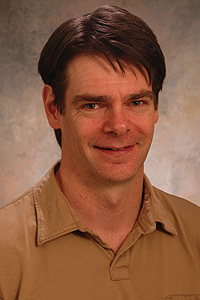 Benoit Roux 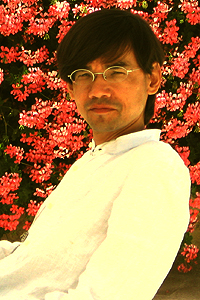 Mauricio Tenorio-Trillo 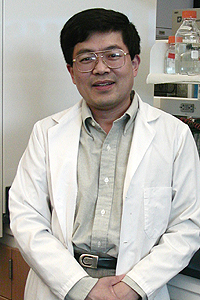 Ming Xu | |
Matthew Stephens has joined the Chicago faculty as a Professor in Statistics, Human Genetics and the College. He has devoted most of his research career to the development of novel statistical methods for solving problems that are inadequately addressed by standard or existing procedures. With a grant from the National Institutes for Health, he is developing statistical methods and software for the interpretation and analysis of human genetic variation, with an emphasis on attempting to better understand the genetic basis of disease.
He is the recipient of the 2002 Mitchell Prize “in recognition of an outstanding paper that describes how a Baysian analysis has solved an important applied problem.” The prize is jointly sponsored by the American Statistical Society, the International Society for Bayesian Analysis and the Mitchell Prize Founders’ Committee. He also received the University of Oxford’s 2000 Corcoran Prize for an outstanding thesis.
Stephens attended Cambridge University, where he earned his B.A. in mathematics with first-class honors and then his Diploma in Mathematical Statistics with distinction. He completed his doctorate in statistics at the University of Oxford, where he remained as a postdoctoral research assistant and then became a Wellcome Trust Junior Research Fellow in Biodiversity Research. In 2001, he joined the faculty of the University of Washington, where he recently served as associate professor of statistics and adjunct associate professor in genome sciences.
Mauricio Tenorio-Trillo, an expert on Mexican national identity, has joined the University faculty as a Professor in History.
He is the author of a number of books published both in English and Spanish, including Mexico at the World’s Fairs: Crafting a Modern Nation (1996); Argucias de la historia: Del Siglo XIX, América Latina y Cultura (History’s Gambit: On the Very Ideas of the 19th Century, Latin America, and Culture) (1999); De cómo ignoro (How to Ignore) (2000); and El urbanista (The Urban Planner) (2004).
Before coming to Chicago, Tenorio-Trillo was an associate professor of history at the University of Texas, Austin.
Tenorio-Trillo received a B.A. in sociology from the Universidad Autónoma Metropolitana in 1985, an M.A. in history from Stanford University in 1987 and a Ph.D. in history from Stanford University in 1993.
Ming Xu, an authority on the neurobiology and genetics of drug addiction, has been appointed Professor in Anesthesiology. He comes to the University from the Vontz Center for Molecular Studies at the University of Cincinnati where he was a professor of cell biology, neurobiology and anatomy.
Xu studies the molecular and cellular mechanisms underlying addiction to various drugs, including the relationship between the neurotransmitter dopamine and the drug cocaine. Xu and his colleagues have used gene-targeting technology to study dopamine receptors to better understand the effects of the psycho-stimulants cocaine and amphetamine.
Xu is the principal investigator for several NIH grants to study the molecular determinants of compulsory drug taking. He also has published more than 50 research papers and 10 book chapters on the genetics of drug addiction.
Born in China, Xu received his B.A. in chemistry from Peking University in 1982 and his Ph.D. in biochemistry from the University of Texas Southwestern in 1989.
He completed a postdoctoral fellowship at the Center for Learning and Memory at the Massachusetts Institute of Technology in 1995 and joined the faculty of the University of Cincinnati College of Medicine in 1996.
![[Chronicle]](/images/sidebar_header_oct06.gif)